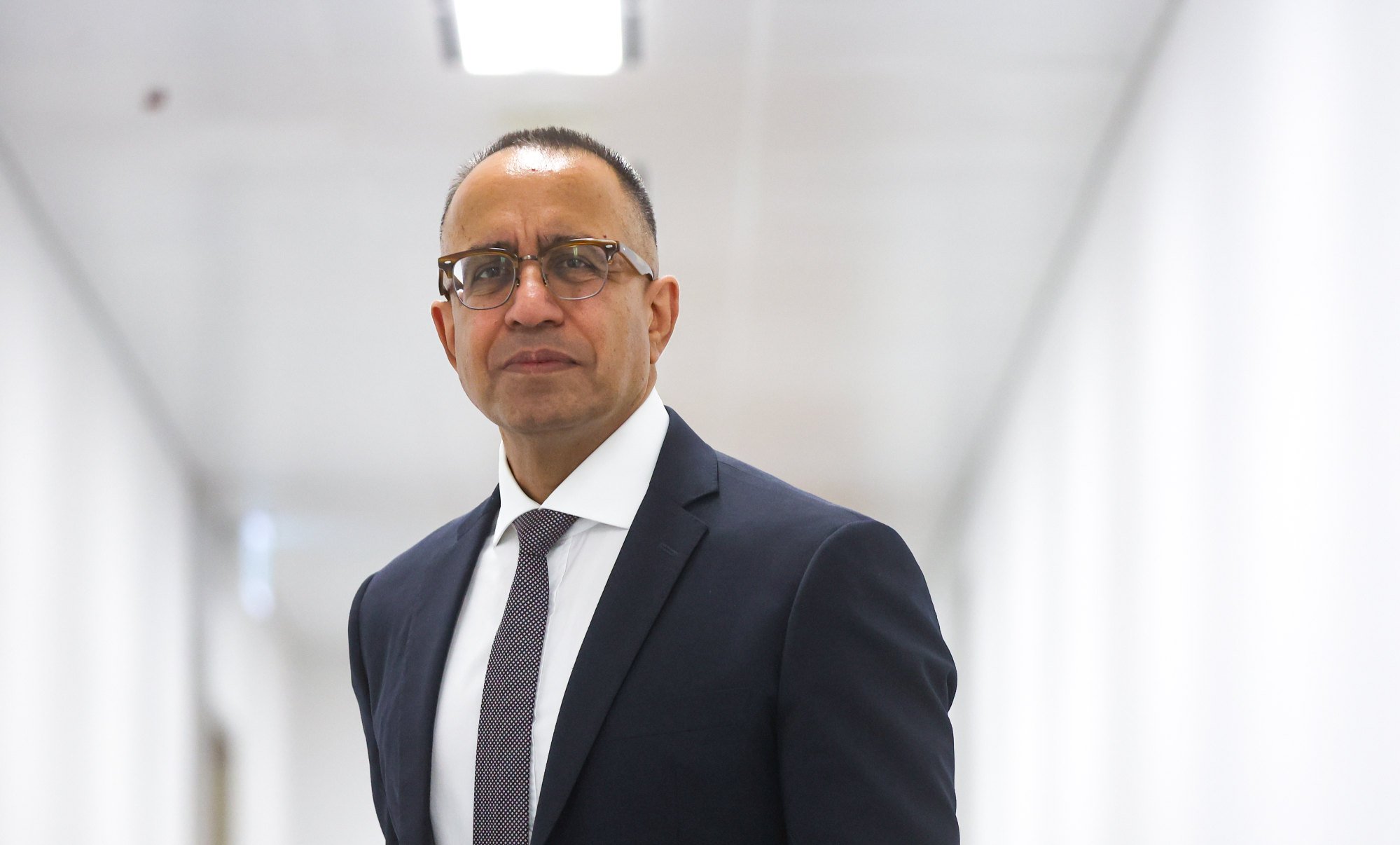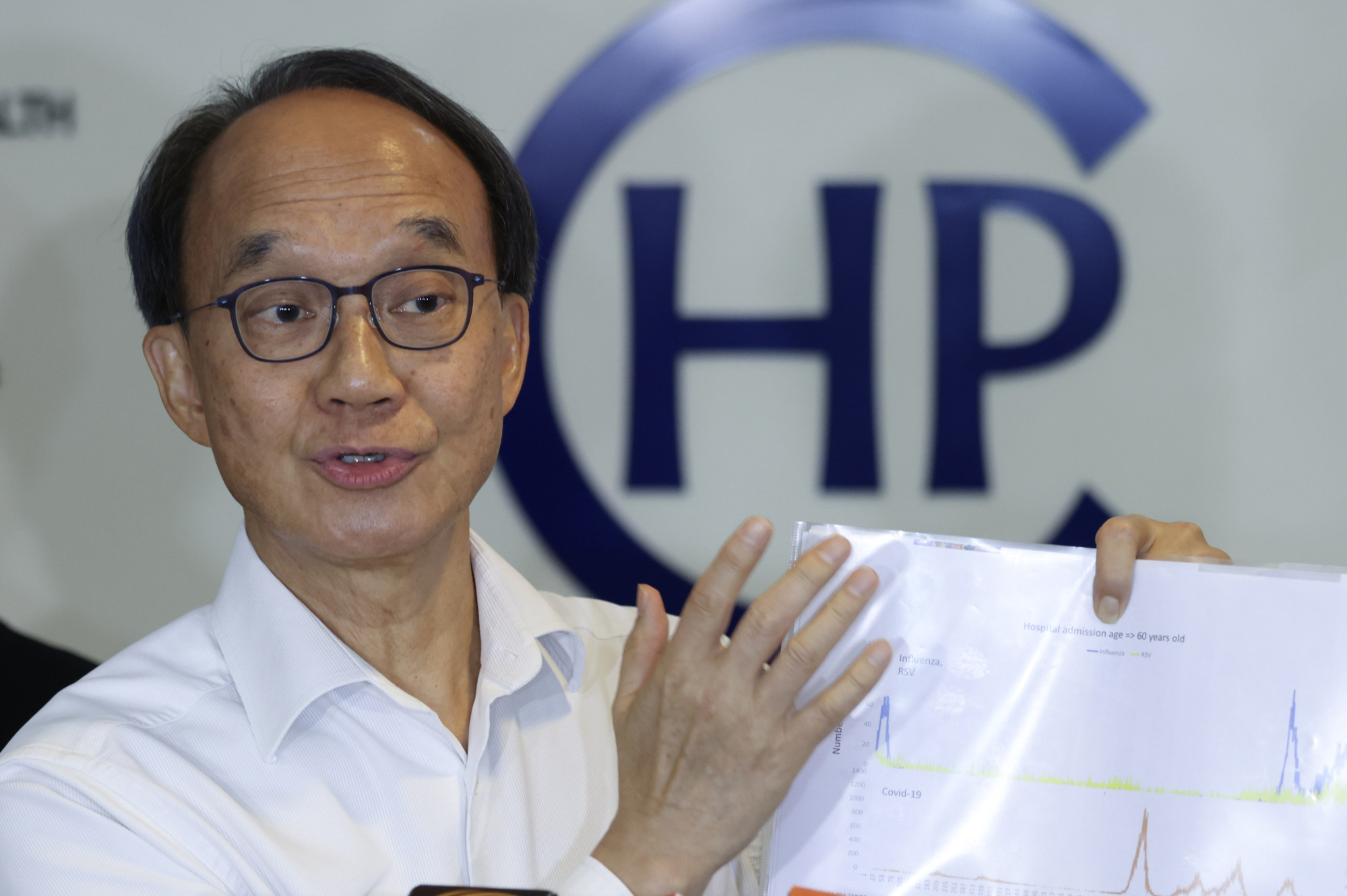Hong Kong’s private healthcare providers expected to offer RSV vaccine from mid-December, but experts say more data needed to decide if public sector should follow suit
[ad_1]
Hong Kong’s private healthcare sector is expected to start offering a vaccine to protect older people against a common respiratory infection from next month.
Experts told the Post more clinical data was needed before deciding if the respiratory syncytial virus (RSV) vaccine should be included in public programmes.
RSV can cause infections in the airways, lungs and middle ear, with young children and the elderly more likely to develop serious conditions if infected.
Hong Kong is the second market in Asia after Japan to approve the vaccine Arexvy, made by British pharmaceutical company GlaxoSmithKline (GSK). The shot was registered in the city on October 20.

Raj Bhatti, vice-president and general manager of GSK Hong Kong and Macau, told the Post that the company was taking pre-orders from some private clinics and hospitals.
A dose of the vaccine is expected to cost about HK$2,000 (US$257).
Bhatti said the company was aiming to get the first batch delivered by mid-December from Belgium, where it was made, and was confident about securing supplies.
In Hong Kong, RSV infections occur throughout the year. According to data from the Centre for Health Protection, the city recorded dozens to hundreds of RSV cases each week this year, hitting a peak of 490 over the seven-day period starting from September 3.
Pfizer ‘seeking approval from Hong Kong authorities to introduce RSV vaccine’
Pfizer ‘seeking approval from Hong Kong authorities to introduce RSV vaccine’
The health authorities gave no breakdown of infections by age group.
Bhatti said GSK hoped to start discussions with the health authorities on providing the vaccine in the public sector, with the jabs included in the government vaccination schemes.
Currently, the government offers elderly people free or subsidised vaccines for influenza and pneumococcal infection.
GSK and American pharmaceutical firm Pfizer are in head-to-head competition to develop and deliver RSV vaccines globally.
The Post reported earlier that Pfizer had applied to have its RSV vaccine, Abrysvo, approved for use in Hong Kong.

Both vaccines have been approved in the United States and European Union for people aged 60 and above, but the Pfizer product has also been cleared for women who are 32 to 36 weeks pregnant to protect newborns.
Bhatti said GSK was focused on the elderly.
Asked about the new RSV vaccines, a spokesman for Hong Kong’s Department of Health would only say the Centre for Health Protection had been keeping abreast of the latest position of the World Health Organization on immunisation and vaccination.
The centre was also monitoring scientific evidence related to new vaccines, and the advice and practical experience of health authorities across the world.
Hong Kong parents warned about other respiratory illnesses despite Covid peaking
Hong Kong parents warned about other respiratory illnesses despite Covid peaking
Respiratory medicine specialist Dr Leung Chi-chiu said elderly people with high-risk conditions could take RSV vaccines for protection, but he felt the high price of the new vaccines could deter people.
It was also not yet clear how long the protection offered by the jabs would last.
“Both vaccines do not have long-term data,” Leung said. “At the moment, we are not certain how long the protection could be offered by the jabs.”
Illnesses plague Hong Kong schools after mask mandate dropped: paediatrician
Illnesses plague Hong Kong schools after mask mandate dropped: paediatrician
Without commenting directly on the RSV shots, Professor Lau Yu-lung, chairman of the Centre for Health Protection’s Scientific Committee on Vaccine Preventable Diseases, said experts had to consider several factors before deciding whether to recommend jabs for public programmes.
They needed to know the prevalence of RSV infections and the number of serious cases or deaths caused by the virus.
“Studies would need to be done on elderly people, as well as children, to see whether vaccines could reduce the disease burden … and meet the cost-benefit analysis,” Lau said.
[ad_2]
Source link





